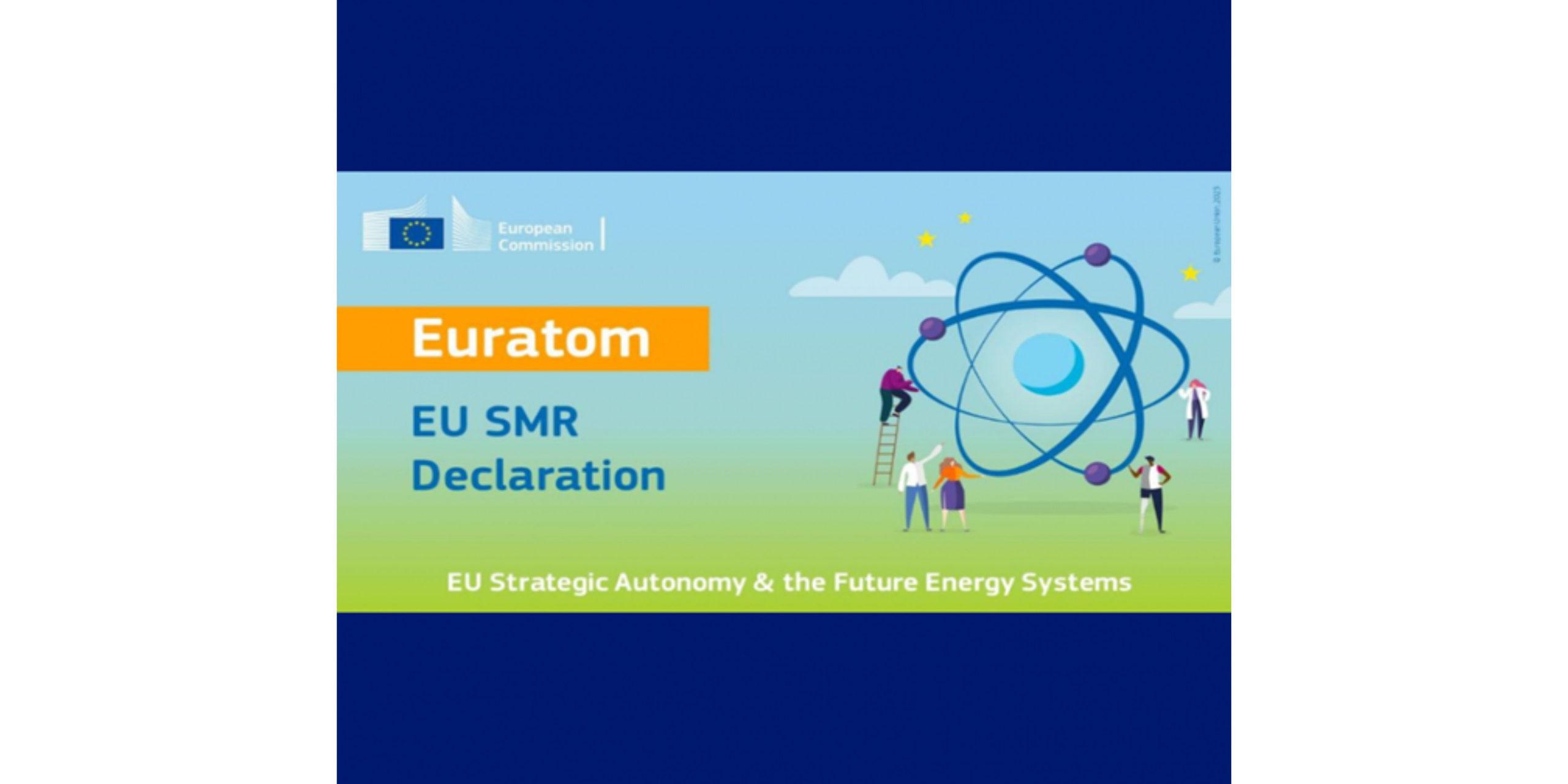The 4th of April, the European Commission announced the ambitious Declaration on ‘EU Small Modular Reactors (SMRs) 2030: Research & Innovation, Education & Training’. The declaration was signed by Commissioner Mariya Gabriel and EU nuclear stakeholders: nucleareurope, Sustainable Nuclear Energy Technology Platform (SNETP), European Nuclear Society (ENS) and European Nuclear Education Network (ENEN). Following this Declaration, the EU will continue to lead research, innovation, education and training for the safety of European SMRs in support of the EU pre-partnership on SMRs.
The Declaration was prepared as a follow-up of Commissioner Gabriel’s High-level Nuclear Roundtable held on 15 March 2022, and announced today at the conference Euratom Research in Action and Opportunities for Europe: EU Strategic Autonomy and the Future Energy Systems.
For those Member States that choose to include nuclear in their energy mix, SMRs will serve as complementing assets. SMRs are one promising option to replace old coal power plants and to complement the penetration of renewables. SMRs should offer the flexibility of use for district heating, desalination, process heat for energy-intensive industries and production of hydrogen.
Faced by strong international competition, the EU must be at the forefront of the new developments, ensuring a European industrial value chain while being at the top of safety and radiation protection standards for SMRs. To ensure EU leadership and strategic independence for SMRs, there is a need to support the best regulatory and institutional standards, to improve human resource management, to make nuclear careers more attractive, to optimise the use of nuclear research infrastructures and to stimulate the emergence of EU SMR designs.
The conference was also an opportunity to present the Euratom Research and Training Work Programme 2023-2025 (EUR 132 million). The Commission is launching the first-ever Innovation Action of EUR 15 million through the Euratom Work Programme 2023-2025 to support the safety of European Light Water SMRs.
In addition, this Work Programme will earmark EUR 12 million for co-funding researchers and industry to work together on the safety of Advanced Modular Reactors (AMRs), including SMRs, with interested Member States. The calls for proposals for the Euratom Research and Training Work Programme 2023-2025 have been launched on the Funding and Tenders Portal.
As 2023 has been declared the European Year of Skills, it was a great opportunity to listen to two young talents present their learning and training experience in the nuclear field. The European Union requires nuclear expertise to make sure that there is and will be a well-qualified workforce for present and future nuclear science and technology applications. Know-how and competences have to be transferred to the next generation of scientists, engineers and technicians. To address this situation and the risk of knowledge loss, the EU is taking action on Education & Training in nuclear.
The Commission also invited 9 Ukrainian scientists and engineers to join the conference in Brussels as part of the continued support provided to Ukraine. Their participation was possible thanks to the Foreign Policy Instrument financial support. Ukraine’s association to Horizon Europe and the Euratom Research and Training Programme is a key instrument to preserve and nurture its research and innovation ecosystem. A concrete example of the support of the Euratom Research and Training Programme to Ukraine is included in the new Work Programme. It contains a topic of EUR 750,000 to support high-level nuclear education and training, knowledge management and competences in Ukraine, in cooperation with six Ukrainian universities. Moreover, following the invasion of Russia in Ukraine, the Euratom Work Programme 2021-2022 was amended to include a topic aimed at diversifying the nuclear fuel supply for VVER reactors currently highly dependent from Russian fuel.
Background
Small Modular Reactors
SMRs are smaller, both in terms of power output and physical size, than conventional gigawatt-scale nuclear reactors. In fact, SMRs are nuclear reactors with power output less than 300 megawatts electric (MWe), with some as small as 1-10 MWe. SMRs offer potential advantages in terms of design simplification and inherent safety features. SMRs are designed for modular manufacturing, factory production, portability, and scalable deployment. Reactors SMRs use nuclear fission reactions to create heat that can be used directly, or to generate electricity.
Euratom Research and Training Work Programme 2023-2025
From the 4th of April researchers can start to submit proposals to the newly adopted Euratom WP 2023-2025 that has a total budget of EUR 132 million: EUR 126 million for Fission of which 60% for safety, 19% for waste management, 17% for radiation protection, medical and other applications, and 4% for other actions including Prizes and Presidency conference; EUR 6 million for Fusion (fusion appropriations for 2021-2025 were committed in 2021 to EUROfusion). This WP will also support two Co-funded Partnerships: EURAD 2 for radioactive waste management (EUR 20 million) and the new Co-funded European Partnership for research in nuclear materials (EUR 20 million).
Source: European Commission | Research and Innovation (https://bit.ly/3ZNLVYy)
